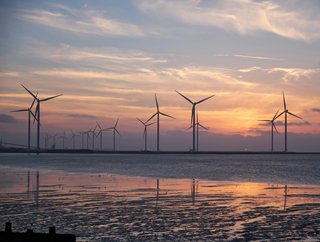Google Ramps up Green Power Supply with Offshore Wind PPA

Tech giant Google has embarked on its largest-ever offshore power agreement in the Netherlands, a further milestone in its pursuit of meeting renewable energy and climate targets.
Google — which says sustainability has been a core value since it was founded more than 25 years ago — was among the first major companies to match its energy use with 100% renewable energy. It did so in 2017, but is not stopping there.
The American multinational technology company, parent company Alphabet Inc., is now harnessing wind energy from two new wind farms developed by Crosswind & Ecowende Consortia, a collaboration between Shell and Eneco — a Dutch utility — with Google set to secure 478MW of through the project.
Google plans to ‘operate on carbon-free energy around the clock by 2030’
“Our ambition to operate on carbon-free energy around the clock by 2030 requires clean energy solutions in every grid where we operate,” said Matt Brittin, President of Google in EMEA.
The move to procure power via the Crosswind & Ecowende Consortia is part of a wider company goal for Google, particularly its commitment to sustainable data centre operations globally. This, Google’s largest offshore wind power purchase agreement (PPA) to date, also comes as it announces smaller renewable PPAs in Italy, Poland and Belgium — although finer financial details of the deals have not been released.
It is part of a wider company goal of Google to diversify its power supply to achieve its climate targets, especially during times of increased electricity demand.
PPAs are key to securing clean power, say Reuters
News agency Reuters holds firm that renewable power project developers are increasingly tying electricity outputs to long-term PPAs to provide revenue security.
Many companies with similar goals currently work on an annual basis, matching PPAs or purchases of renewable energy certificates with their yearly electricity use, the outlet said.
Google, however, is taking a slightly different approach to be more mindful of its own use and demand. It is seeking to match each hour of electricity used with an hour of clean power production, something some say better reflects companies' actual energy use.
As part of its pursuit of efficiency and cleaner energy, Google also pioneers innovative solutions within the data centre sector — including the likes of liquid cooling technologies — to enhance sustainability. Some studies have found that liquid cooling techniques can be anything from 50 to 1,000 times more efficient than air cooling. The liquid cooling market’s projected growth underscores its success, with it predicted to boom from US$2.6 billion in 2023 to US$7.8bn by 2028.
*******************
Make sure you check out the latest edition of Energy Digital Magazine and also sign up to our global conference series - Sustainability LIVE 2024.
*******************
Energy Digital is a BizClik brand.
- How Can UK Offshore Wind Industry Find 70,000 New Recruits?Renewable Energy
- How Siemens Gamesa Became a Global Wind Power LeaderRenewable Energy
- Insight Into Unique Project for Floating Offshore Wind FarmRenewable Energy
- Data Centre Demand Putting Pressure on Energy CapabilitiesTechnology & AI






